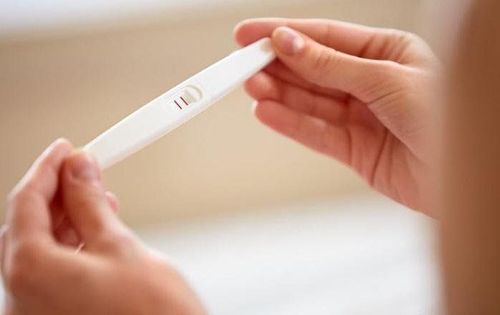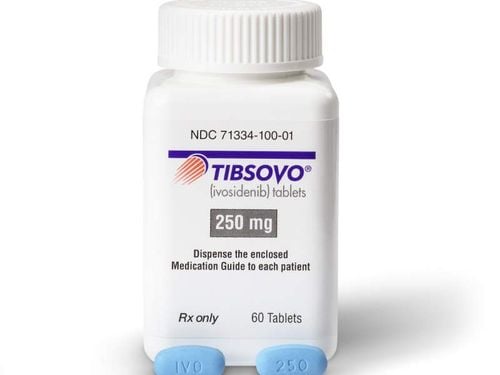This is an automatically translated article.
Many cancer treatments have a temporary or permanent effect on fertility. Therefore, before starting treatment, consult with your doctor about the risk of affecting your fertility as well as solutions to preserve your fertility.
1. How does cancer treatment affect fertility?
Reproductive problems caused by cancer and cancer treatment occur in two main ways:
Damage to reproductive organs, such as the ovaries, fallopian tubes, uterus and neck uterus. Damage to hormone-producing organs, such as the ovaries. The ovaries are where a woman's eggs are stored, so damage to the ovaries will directly damage the number of stored eggs. Reserve eggs are immature eggs that are stored on both sides of the ovaries. These eggs are born from birth, only lost but cannot be recovered. Therefore, damage to the ovaries can lead to infertility and early menopause.

Nếu tổn thương buồng trứng có thể dẫn tới hậu quả vô sinh và mãn kinh sớm
2. Cancer treatments affect fertility
The following are cancer treatments that have undesirable effects that affect (or may affect) fertility:
Chemotherapy: chemicals used in chemotherapy (especially chemotherapy drugs). alkylation) may affect fertility. Drugs that can affect fertility are: Busulfan (Busulfex, Myleran). Carmustine (BiCNU). Chlorambucil (Leukeran). Cyclophosphamide (Neosar). Doxorubicin (Adriamycin). Lomustine (CeeNU). Mechlorethamine (Mustargen). Melphalan (Alkeran). Procarbazine (Matulane). Radiation therapy: Radiation therapy to the following areas may affect fertility: Abdomen. Hip pots. Low spine. The ovary and the area around the ovary. Uterus. Pituitary gland (located in the brain). Systemic (in bone marrow transplantation). Surgery: surgery to remove reproductive organs that can affect fertility: Surgery to remove the uterus. Surgical removal of the cervix. Surgery to remove one or both ovaries. Surgical removal of pelvic lymph nodes.
3. Menstruation and pregnancy after cancer treatment
Women who menstruate after cancer treatment can become pregnant, but menstruation is not a complete guarantee of pregnancy.
In some cases, cancer treatment stops the menstrual cycle, called premature menopause, and it causes permanent infertility.
In other cases, the menstrual cycle stops temporarily and then resumes. Women who get their period back after chemotherapy may still have a low chance of getting pregnant
In women who are older or have received large doses of radiation or chemotherapy, it usually takes longer to get their period back, and the ability to act Menstruation is also lower.
Children and young women often have a larger egg reserve than older women. They are also less likely to experience sudden menopause or infertility immediately after chemotherapy. However, this does not mean that young women will not be infertile. With radiation therapy to the pelvis and lower abdomen as well as high-dose chemotherapy, even children can experience immediate menopause.

Phụ nữ có kinh nguyệt sau khi điều trị ung thư vẫn có thể mang thai
4. Getting pregnant after cancer treatment
Conditions for getting pregnant without assisted reproduction are:
Having at least one healthy ovary with sufficient reserve of eggs. A healthy faucet. Healthy uterus. Certain hormones are needed to reach ideal levels. However in some cases it is advisable to wait a while before becoming pregnant, and the length of time depends on:
Type and stage of cancer. Treatments. Patient's age. For example, a woman on hormone therapy may need to delay pregnancy for a while.
Delaying pregnancy can also reduce your chances of getting pregnant, as your egg reserves decrease over time. Therefore, reproductive conservation measures should be considered.
5. Measures to preserve fertility
All women with cancer should talk to their doctor about their infertility risks and fertility preservation options as soon as possible before starting treatment.
Methods of preserving female fertility were selected based on:
Age. Spouse's health status. Physical and sexual maturity. Personal aspirations. Methods of preserving female fertility include:
Embryo freezing: this is the most successful method of preserving female fertility, also known as artificial insemination. The woman takes the pill for about two weeks, after which the eggs are removed, fertilized in a lab, and frozen for later. Egg freezing: This method is similar to embryo freezing, but the eggs will not be fertilized. This method applies to unmarried women, and the success rate is slightly lower than embryo freezing. Fertility-preserving surgery in women: Some cervical or ovarian surgeries can preserve fertility. With surgery for cervical cancer, sometimes the surgeon removes only the cervix, leaving the uterus intact. A woman can give birth through a cesarean section. This is an option for women with early-stage cervical cancer. With ovarian cancer surgery, sometimes only one ovary is removed, which is used for early-stage cancers that are localized to only one ovary. This helps preserve healthy ovaries for reproduction and avoid early menopause. Ovarian-conserving radiation therapy: Some women need radiation therapy to only one ovary, which preserves fertility. Another option is to use ovarian immobilization, where the surgeon moves one or both ovaries so that the radiation won't reach them, and then puts them back in place after the irradiation is complete. However, this approach is not always successful. Radiation therapy is not always accurate and can still target the ovaries and the blood vessels that supply them. Ovarian tissue preservation: This method involves surgically removing ovarian tissue and freezing it, then transplanting it back when cancer treatment is complete. This method may be the only option for girls when embryo freezing or oocyte freezing is not possible.
6. Consider choosing measures to preserve fertility
Not all methods of preserving female fertility work for everyone. When choosing consider the following:
Can the cost of the method of choice be met? Success rates between methods. Psychological effects on the patient, when the patient is in a stressful period.
7. Reference questions patients can use
If you find it difficult to consult a doctor, patients can refer to some of the following questions:
How will the treatment affect fertility? Is this effect on reproduction temporary or permanent? Are there any treatments that have less of an effect? Which reproductive conservation method is most appropriate? Does the method of fertility preservation chosen affect the risk of cancer recurrence? After treatment, how will I know if fertility has returned? Established in November 2014, up to now, Vinmec IVF Fertility Center - Vinmec Times City International General Hospital has provided fertility support to over 1000 infertile couples with a successful success rate. work over 40%. This rate is equivalent to developed countries such as UK, USA, Australia,..
Reproductive Support Center - Vinmec International General Hospital has the following outstanding advantages:
Being the leading center in Vietnam developed and applied comprehensive treatment and examination. It is home to a team of leading experts in the field of obstetrics and gynecology nationally and internationally. Customers are advised to understand the important meanings of egg storage, and are examined and assessed for the service status for storing eggs by leading experts in the industry. At Vinmec, the doctors and technicians who directly perform egg freezing have been trained at leading domestic and international fertility support centers to perform the process smoothly. Therefore, Vinmec achieves a very high percentage of eggs after defrosting, 95 - 98%. There was no difference in the quality of embryos from frozen and non-coagulated eggs. The egg retrieval process is quick and painless. Modern medical equipment for examination and collection of eggs and ensuring egg storage in the most optimal environment for the longest time.
Please dial HOTLINE for more information or register for an appointment HERE. Download MyVinmec app to make appointments faster and to manage your bookings easily.
Article referenced source: cancer.net












